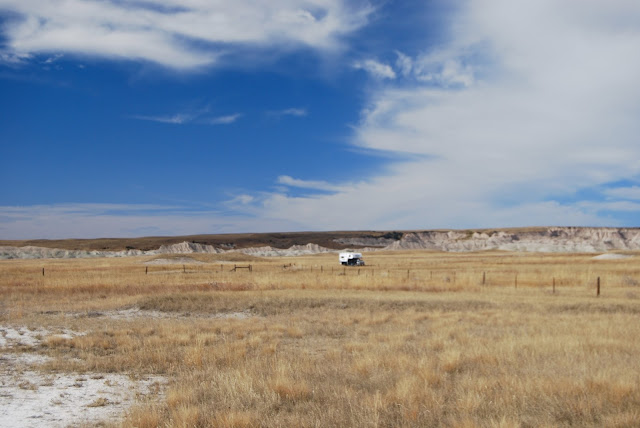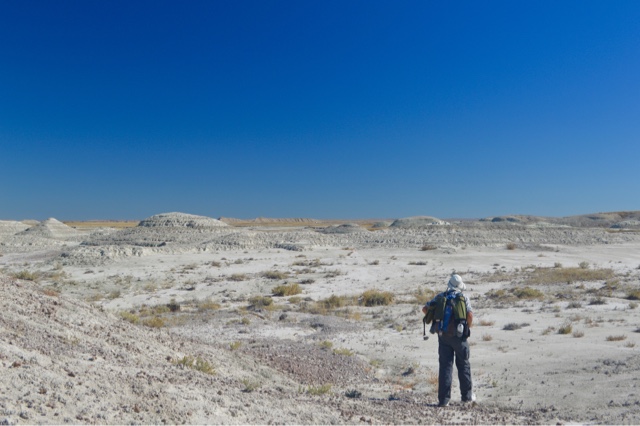The National Grasslands are large areas that are primarily in the upper mid west. They were formed when the Government bought back useless land from people who homesteaded these areas around the turn of the 20th Century.
What was learned was that when these people settled the land it was in the midst of an usual climate spell---there was rain and the land was good.
However, that is not usually the case here, and the land was basically destroyed. To keep the farmers from going under, the government purchased the land from them, and set about attempting to restore it.
And, based on what we have seen, the government gets an A+ for this.
But trying to camp and hike in these areas is a challenge that is different from other places we have gone.
The big reason is that a huge amount of areas within the official boundaries of the Grasslands are private. It requires a lot of planning and effort to be able to camp and hike in these areas and stay off of people's private property.
For example, here is one of the National Grasslands, as displayed in our Road Atlas:
I have made an outline of the area in red. Inside, it is all green--indicating it is all National Grassland. That is what we initially saw when we thought about visiting these Grasslands. Wow! Look at all the places we can camp and hike we thought.
However, here is the map you get when you contact the Grasslands office itself and pay for one:
The outlined area is the official boundary, as shown above. As you can see, within that boundary most all of the area is colored white. That represents private land. Only the green areas are public.
So to visit these areas is extremely tricky. We can only do this because Vicky got the correct maps ahead of time, and because we have a sophisticated GPS device with a map of public lands on it. Without that, we would not be able to enjoy these National Grasslands.
We choose our camping spots to be places where there are a lot of public lands in most directions. Before we hike, I draw the areas that are private so that we can avoid them. An example is below.
The black line is our hike. The areas shaded yellow are public. The area shaded blue is state land. You can see how tricky it was to avoid private property. For the most part, the areas that are private are not marked or bounded by fences.
We are glad we have visited these National Grasslands, but do have to say that it requires a lot of planning and know-how to be able to know where one can go on them.
We don't say this as criticism, as what the government has done over the past 80 years is simply remarkable. And, in fact, for us this is a good thing because we are more likely to find the isolation we seek in places like this.
Just know that if you are planning on doing what we did you need to be prepared in a way that you don't have to be prepared for in other public places.






















































